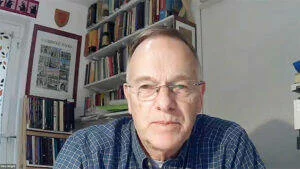I was truly excited about attending The Justice Conference here in Chicago, June 5-6, 2015 sponsored by World Relief and other Christian institutions. Mark Reddy, writing the “Welcome” for the program, incorporated a powerful quote from Dr. Martin Luther King, Jr.
There was a time when the church was very powerful. . . . In those days the church was not merely a thermometer that recorded the ideas and principles of popular opinion; it was a thermostat that transformed the values of society. (p. 1, emphasis his)
I applauded the call for justice in areas ranging from sex-trafficking to racial reconciliation. All were related to Jubilee-like themes that should burden the Church of Jesus Christ. The Jubilee Worship Band was a phenomenally talented group that filled the theatre with inspirational music, providing a welcoming, worshipful atmosphere. Worship, unity, love, and justice were themes that permeated the music, the presentations, and the panels. This was only appropriate because all these themes find their meaning and power in and through the Lord Jesus Christ.
I believe that the Church had such power because it understood what it believed…
Sometimes I wish that I did not think the way that I do. I must confess that I maintained somewhat of an emotional distance from all that was going on because I wanted to listen to, and think about, the messages. In line with the quote from Dr. King, I believe that the Church had such power because it understood what it believed and understood the implications and applications of what it believed. Words embodied in biblical teaching, incorporated in theological confessions, and implemented in church ministry, mean something. The power of the Church diminishes when it loses sight of this reality. Words such as unity, love, and justice are critically important, but what are the definitions in play and from where do they come?
A moving worship experience can arouse feelings of what I believe to be love towards the Lord and others and I can even come to believe that this feeling is inspired by none other than the Lord, Himself, but is it? Am I actually projected my sense of what love is into God? One reason why I pursue that question, is because if one is not careful, antithetical beliefs can be subsumed together in the name of love. Love can come to mean among some the acceptance of people and things outside of the spheres of acceptability in Scripture. I realize that there is a continual battle for proper interpretation of Scripture, but such a struggle has always been a constant characteristic of the Church. While glorying in the reality that “God is love” (1 John 4:8) one must wrestle with the equally true teaching that “holy, holy, holy is the Lord of hosts” (Isaiah 6:3). God’s love is tempered by holiness and all else that legitimately describes him. He is not prone to morph into the mere projection of love by human beings.
The Church can never lose sight of the meaning and power of words.
Sometimes I wish that I did not think at all and could just “experience” God. Matthew 22:37, however, does bring loving the Lord our God together with the use of the mind: “You shall love the Lord your God with all your heart and with all your soul and all your mind” (ESV). The Church can never lose sight of the meaning and power of words. Somehow the Lord must empower his church to be worshipful, active in the human community for his good and the good of others, while concurrently being discerning.








Comments
Be the first one to make a comment!